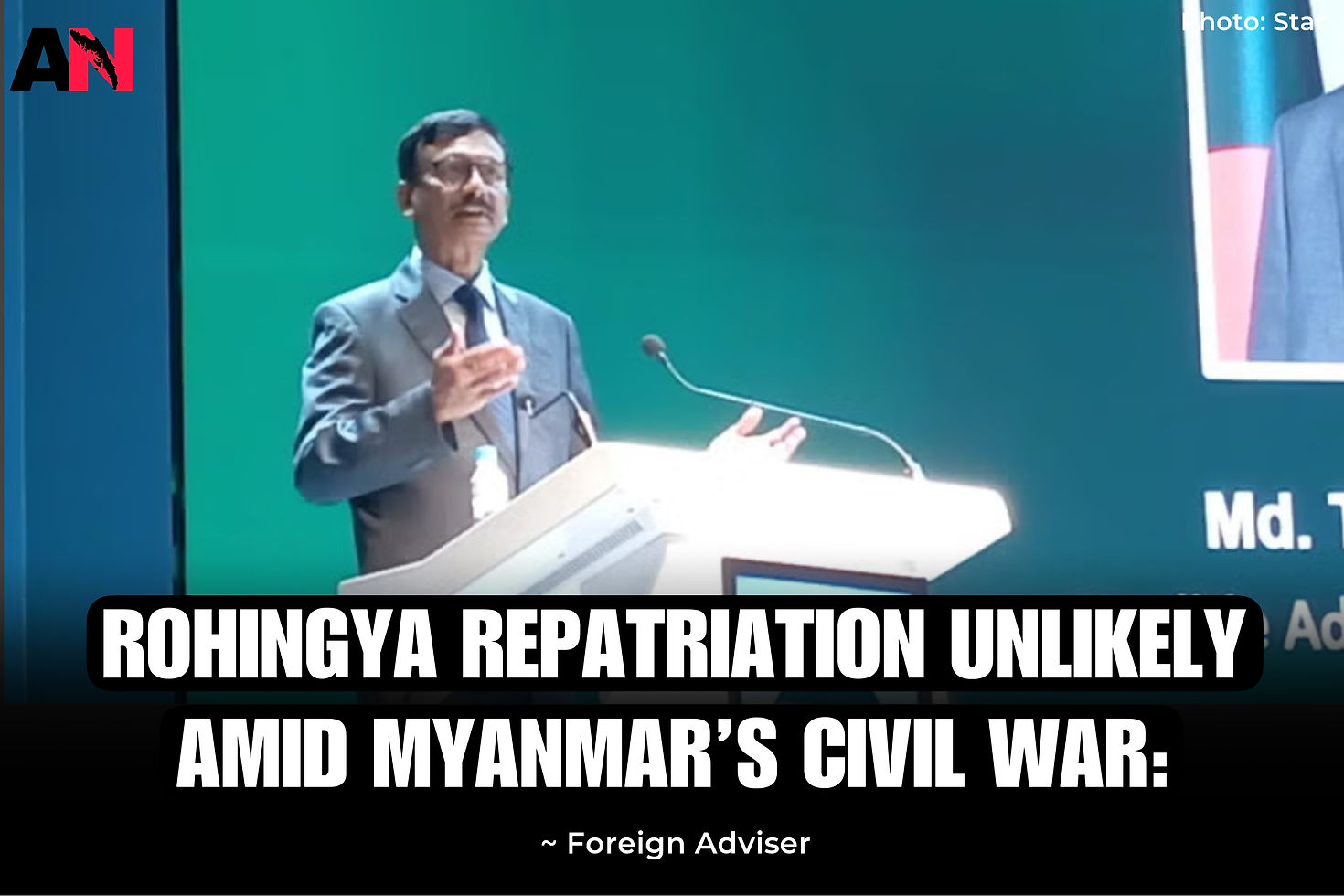
Rohingya Repatriation Unlikely amid Myanmar’s Civil War: Foreign Adviser
- Arakan Now

- May 4
- 2 min read
Arakan Now, 4 May 2025
Foreign Affairs Adviser Md Touhid Hossain today said the prospect of Rohingya repatriation remains grim due to Myanmar's ongoing civil war, fragmented authority, and the continued absence of security and citizenship guarantees for the displaced population.
"We have not yet found a viable solution to this crisis, despite it burdening us for a very long time."
The adviser made these remarks while addressing a seminar titled "Repatriation of Rohingya in Bangladesh: Strategic Implications on Regional Security and Ways Ahead," jointly organised by the Bangladesh University of Professionals (BUP) and the Armed Forces Division.
He highlighted that the 2017 mass exodus—prompted by brutal military crackdowns was the third major wave of Rohingyas fleeing Myanmar.
"Even before that, nearly 300,000 crossed over in a slow, continuous manner. This is a long-standing crisis," he added.
Criticising Bangladesh's early reliance on bilateral diplomacy, the adviser said many, including himself, had warned that such efforts would prove fruitless.
"The intent was different this time. It was a calculated move by a military regime to permanently eliminate the Rohingya population from their territory," he said.
Describing the years-long bilateral process as "futile," he noted that not a single Rohingya was repatriated.
"We cannot abandon diplomacy, but we must stop hoping that bilateral talks alone will succeed. They won't," he said.
He stressed that any repatriation must be voluntary and contingent upon assurances of safety and full citizenship.
"They will not return to a place where their lives are at risk and their rights denied. At least in the camps here, there is a measure of safety," he remarked.
Dismissing the notion that Myanmar was ever a democracy, the adviser said, "Even under Aung San Suu Kyi, it functioned as a quasi-military regime. That pretence is now gone. What we are seeing is a full-scale civil war." Touhid outlined Myanmar's fractured power structure, identifying the military junta, the Arakan Army, and the National Unity Government (NUG) as key stakeholders.
He stressed that any lasting resolution must involve all three, particularly the Arakan Army, which now controls large parts of Rakhine (Arakan) State.
The adviser recalled the NUG's unprecedented public outreach to the Rohingyas, inviting them to join the pro-democracy movement.
"That was a crucial opportunity that should have been taken seriously. It could have established the Rohingyas as legitimate political actors within Myanmar," he said. Warning of the consequences of prolonged displacement, especially among camp-dwelling youth, he said, "It is unrealistic to expect one million people—half of them young boys—to remain peaceful indefinitely. This unresolved crisis risks fuelling radicalisation and destabilising the region."
He called on the international community to maintain focus on the Rohingya crisis amid other global conflicts, praising the recent visit and remarks by the UN secretary-general as a welcome development but urging more sustained engagement.
Source: The Daily Star









